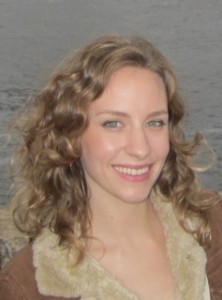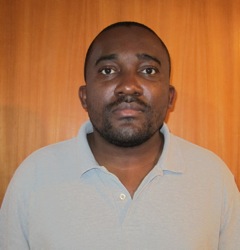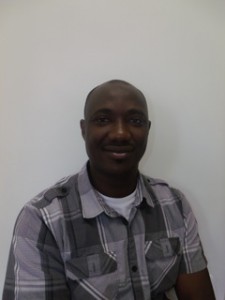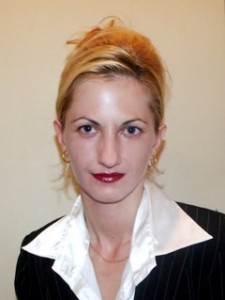OSDC PIRE Year 1 Researchers (2011)
Fellows
The international PIRE project aims to narrow the growing gap between the capability of modern scientific instruments to produce data and the ability of researchers to manage, analyze, and share those data in a reliable and timely manner.
This year’s PIRE team intends to help develop a large-scale system of distributed computing capabilities – the Open Science Data Cloud (OSDC) – to provide long term persistent storage for scientific data and state-of-the-art services for integrating, analyzing, sharing and archiving scientific data.
Christine Kuryla
-
Senior undergraduate student
-
Field: Physics and Mathematics
“I am attracted to computational biophysics, condensed matter, and particle physics, which are fields that require massive data processing, organization, and collaboration. They produce data that will enable research and analysis, but it is essentially useless if we cannot deal with the plethora of data and organize the results efficiently. The scientific community thrives on collaboration, so it is important to facilitate access to information that would further research.”
Charles Kamhoua
-
PhD student
-
Field: Electrical Engineering
Charles is interested in optimizing data storage in the large public repository of scientific data on the OSDC.
Mayen Gonzalez
-
Senior Undergraduate student
-
Field: Physics
“While researching at the University of California-Berkeley, I realized that it is to the benefit of the scientist to be able filter the “noise” out of your data to efficiently obtain results in a short period of time. Being part of this program will strengthen my scientific ability, as well as expose me to a realm of science so imperative to the field.”
Raymond Uadiale
-
PhD student
-
Field: Electrical and Computer Engineering
In order to provide cloud computing services economically, it is important to optimize resource allocation under the assumption that the required resource can be taken from a shared resource pool. Raymond wants to design a new algorithm using game theory to enhance resource allocation and minimize the scheduling delay in cloud computing.
Timothy Rogers
-
Bachelors Degree
-
Field: Mechanical Engineering
The main focus of Timothy’s research centers on the selection of an accurate airplane wing profile that works towards achieving the goals set while minimizing the weight and drag. However, evaluating various wing profiles requires ample resources and time due to the large amount of data that is produced. This process could be improved through the use of cloud computing which would allow teams to review data regarding wings that have been previously tested as well as have fellow students collaborate to solve this complex and challenging scientific problem.
Vasilka Chergarova
-
Senior undergraduate student
-
Field: Information Technology
Vasilka’s project involves improving useful web-based portal-driven architecture supporting specific applications to share genomic and related data. The design and exploitation of resources through web-based interaction can help provide rapid data mining for researchers.






